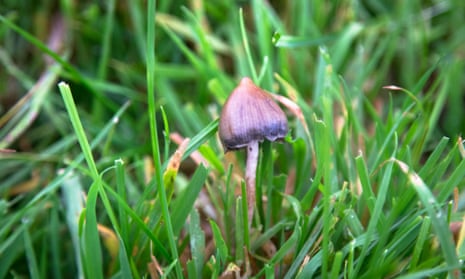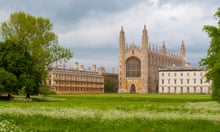A UK university is launching one of the world’s first postgraduate qualifications on psychedelics to teach healthcare workers about using psilocybin, LSD, MDMA and other psychoactive drugs in therapeutic work.
The certificate from Exeter University cements psychedelics as an area of scientific importance in the UK. It could help pave the way for clinical therapies becoming available within the next five years, with some treatments being in the final stages of clinical trials.
This would follow Australia, which has become the first country to allow psychiatrists to prescribe psychedelics for treatment-resistant depression. In the US, MDMA may be licensed to treat post-traumatic stress disorder by the end of the year, and Oregon and Colorado are planning to legalise the regulated use of psilocybin, the hallucinogenic chemical found in magic mushrooms.
Celia Morgan, a professor of psychopharmacology at the University of Exeter and a co-lead of the programme, said: “As the world wakes up to the potential for psychedelics to be an important part of the toolkit to treat some of our most damaging mental health conditions, it’s vital that we’re training the workforce to meet the demand. The global body of high-quality evidence is now irrefutable – psychedelics can work where other treatments have failed.”
Noting that the main barriers to their use were legal and structural rather than medical, she added: “I think this shows how far we have come from the fear and stigma that dogged this field for years, a change which we also see reflected in leading universities around the world conducting gold-standard clinical trials.
“The control of most of these substances on schedule 1, which means they have no medical value, is still the biggest barrier, but we remain optimistic that this may change in the UK with the increasing weight of evidence, as it is starting to in countries like the US and Australia.”
The programme will capitalise on Exeter’s world-leading psychedelics research, and will be named Psychedelics: Mind, Medicine, and Culture. It was unveiled at Breaking Convention, Europe’s largest psychedelics conference.
The programme is targeted at healthcare workers and therapists, as well as anyone interested in the emerging potential of psychedelics, including those who wish to tap into a psychedelic healthcare market predicted to be worth £8.4bn by 2028.
The certificate will cover a broad range of topics, including teaching about existing psychedelic therapies and research in psychology, psychiatry and neuroscience, as well as modules on philosophy – such as the insights into consciousness and metaphysics that psychedelics give – and discussions of decolonising psychedelic research and practice, including an anthropological look into cultures which have used psychedelics for centuries. Students will also learn practical skills, such as therapeutic techniques and research skills.
Psychedelics were found to have promising applications in mental health treatments during the 1950s and 60s, but research was banned as part of a political clampdown on illicit drug use.
However over the past 10 years the tide has turned, as a growing body of research has shown that psychedelic drugs can treat conditions such as depression, anxiety, post-traumatic-stress disorder, obsessive compulsive disorder, tobacco addiction, substance and alcohol dependency.









